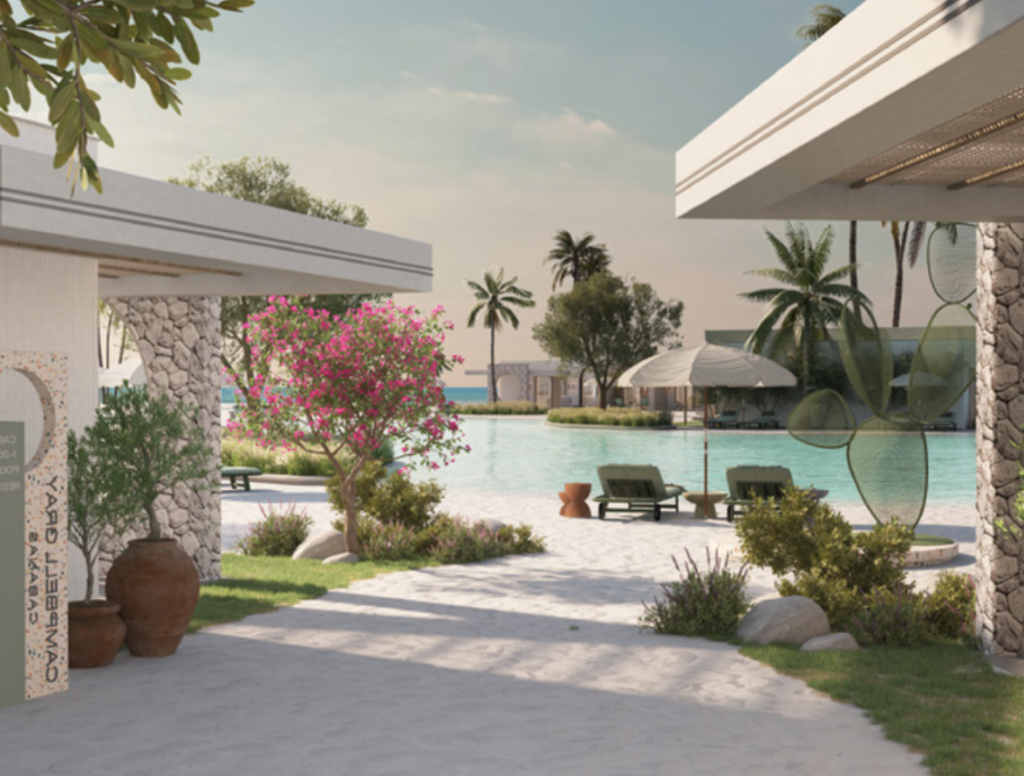The GCC has truly cemented its place as a global leader in luxury and innovation when it comes to tourism. Think grand resorts and towering international hotels – that’s often the first image that comes to mind. But there’s an exciting, evolving opportunity brewing beneath the surface: a chance to introduce more individual, character-driven hospitality experiences in the Gulf.
Today’s travellers, from cutting-edge creatives to high-net-worth individuals, are increasingly seeking out places that offer a deeper, more personal connection, places that truly resonate on an emotional level. This is where boutique hotels shine. They answer this demand by delivering human-centered experiences that prioritize intimacy, privacy, and genuine connection. What used to be a delightful preference has now become an expectation, especially after the pandemic highlighted our collective need for comfort and low-contact environments. With fewer rooms, more intimate shared spaces, and a thoughtfully considered scale, boutique properties offer a level of calm and personalization that larger hotels often can’t quite match.
The untapped potential

While most hospitality development in the region is spearheaded by major groups building ever-larger and more opulent hotels, the boutique segment remains surprisingly unexplored. We’re starting to see a few beautiful examples emerge in destinations like Hatta, Al Ula, and Ras Al Khaimah, but the concept of a truly authentic boutique city hotel has yet to be fully developed.
One of the biggest misconceptions about smaller hotels is the idea that “small” automatically means “minimalist.” It’s easy to assume that fewer rooms, sometimes as little as 10, translate to fewer amenities. But this couldn’t be further from the truth! It really misrepresents what boutique hospitality is all about.
“A boutique hotel may have fewer rooms, but it can still provide all the expected services, from room service and multiple, refined dining options to wellness spaces and concierge care. The difference lies not in the availability of facilities, but in the scale and intention behind the experience. Guests can enjoy the full range of comforts without the impersonal volume. This is where the paradigm in hospitality is shifting, the smaller the setting, the more personalised and emotionally resonant the service becomes.” – Saad Audeh, Chairman of Campbell Gray
Imagine this – in a boutique property, the bellman remembers your name, the receptionist instinctively knows your preferences, and the waiter engages with genuine familiarity. It creates a powerful sense of intimacy that large-scale hotels simply can’t replicate.
A golden opportunity for property owners

“For property owners across the GCC, this shift presents a timely and compelling opportunity,” Audeh adds. “Smaller plots, underutilised villas, or midscale buildings that may not suit large-scale development can be transformed into high-value boutique assets.”
These properties often require less capital investment, can be adapted from existing structures, and offer a more efficient path to market. Plus, boutique hotels are incredibly flexible, lending themselves perfectly to creative branding and mixed-use lifestyle integration. This means owners can activate spaces that blend hospitality with unique food and beverage concepts, wellness offerings, or even retail experiences.
Boutique hotels also tend to achieve higher Average Daily Rates (ADR) thanks to their distinctiveness and personal appeal, making them especially well-suited for emerging districts where large-scale development might be less feasible. Globally, the boutique hotel sector is booming, valued at a whopping US $25 billion in 2023 and projected to exceed US $40.3 billion by 2030, with a healthy compound annual growth rate of 7.1%, according to Grand View Research. It’s clear that leisure travellers, who made up over 70% of boutique hotel guests in 2023, are continually seeking out personalized, experience-led stays.
“Boutique hotels globally are outperforming large chains in both revenue and guest satisfaction, a clear reflection of travellers’ growing preference for hotels that offer distinct character and emotional connection. The industry is steadily shifting towards experience-first, emotionally intelligent travel, and this is precisely where Campbell Gray excels.” – Simon Venison, Development and Operations Director at Campbell Gray
Partnering for success
“Campbell Gray isn’t just another hospitality brand; we’re developers, operators, and hands-on partners from day one,” Venison continues. “We work side by side with owners to shape projects that are both creatively ambitious and commercially grounded.”
Campbell Gray blends creativity, precision, and flexibility, all underpinned by a deep commitment to individuality and meticulous attention to detail. Their versatile and hands-on approach means you get direct access to senior leadership and decision-makers, making the development process faster, more personal, and truly collaborative. Every single project they undertake is a one-off masterpiece, perfectly tailored to its location, inspired by its architecture, and aligned with the owner’s unique vision. The result? A hotel that feels purposeful, human-scale, and incredibly effective commercially. Yalla!



